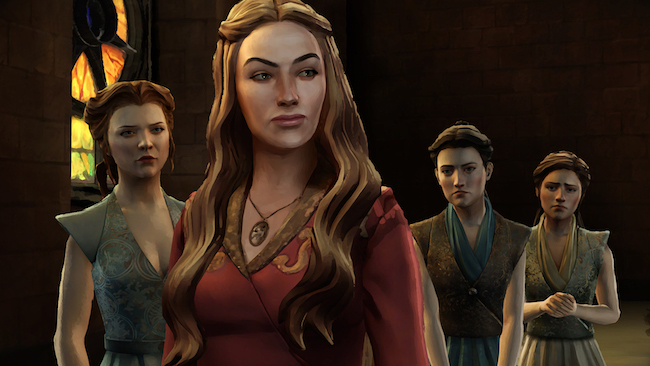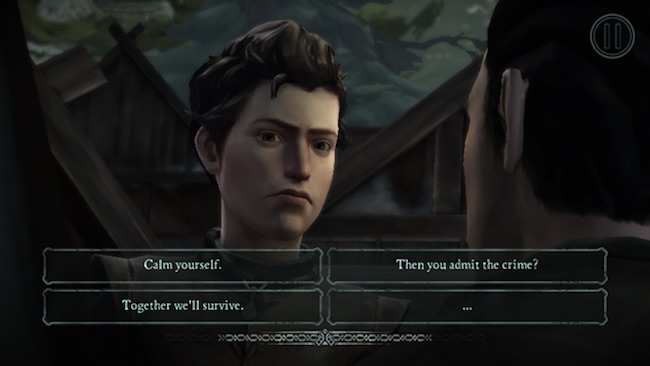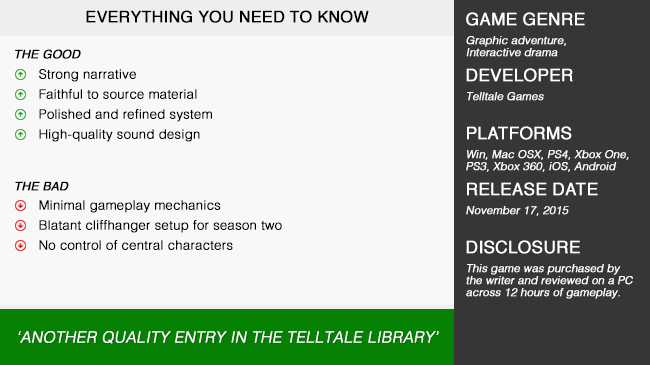
In the early 2000s, the fantasy genre had perhaps its largest surge in popularity thanks to the mainstream success of The Lord of the Rings film franchise. While there was somewhat of a lull after this, eventually the heavily chronicled “A Song of Ice and Fire” series by George R.R. Martin would debut on American cable network HBO entitled “Game of Thrones”. Making such a pop culture splash that it is reportedly the most pirated TV show in Australia, it was only a matter of time before the quickly rising series would be brought to the gaming medium.
Skipping forward a little to 2012, a small off-shoot development team, Cyanide, comprised of several ex-Ubisoft employees landed the rights to create the Game of Thrones RPG. While being praised for its detailed focus on narrative, the game was heavily criticised on some fronts regarding combat mechanics, poor graphic quality and laboured voice acting and sound design. As a fan of both the book and TV series, I was quite disappointed at the sub-par offering that we received. However, little was I to know that two years later a quickly rising game company known as Telltale would land the rights to Game of Thrones – following their critical success with other iconic series such as The Walking Dead and The Wolf Among Us in recent years.

Following the formula of their predecessors, Game of Thrones is a Telltale series that is split up into six episodes to form the first season. You take control of five members from House Forrester, a Northern family who act as bannermen to House Stark and are rulers of Ironrath – famed for their trees that are an invaluable resource for their military value throughout the Seven Kingdoms. Starting off at the infamous Red Wedding, the course of the story unfolds from there – switching between sons and daughters of the house as they aim to guide their family and followers through the tumultuous events following the Red Wedding.
As you would come to expect from a Telltale game, the main focus features heavily on the narrative – once again resting on the decisions made by the player and how their interactions with others will affect the world and politics around them. Unlike previous entries, I appreciated the change in structure from other Telltale titles in switching the narrative between different characters – allowing you to experience the North, Kings Landing and Essos amongst a host of other famous Game of Thrones locations. This assisted greatly in not just building the characters, but also in fleshing out the world in which they existed without assuming that the player might necessarily be familiar with the Game of Thrones universe. As you can expect, the path to conclusion in a Game of Thrones title is nothing short of a myriad of uplifting and earth shattering moments which rings incredibly true of the source material from which it is derived.

Adversely to my previous statement, many fans have spoken out about their frustration at not being able to play central characters within the universe. While I can’t say that I’m entirely agreeing, I can understand the logic behind this criticism – in as much, it can make you feel like a somewhat insignificant part of the story not controlling a major house or character. However, I do believe that Telltale did the best job they could without altering the existing story and still making this adaptation seem plausible as an addition to the Game of Thrones universe. In saying that, however, and without trying to spoil the ending, I was a little disappointed that the conclusion seemed to so blatantly leave a number of questions unanswered which very clearly was setting up for a second season. While I’m definitely excited about this prospect, I feel that it would of perhaps been better served by closing the first season off mostly with perhaps a singular major thread left to launch the new season when it arrives.
Per the usual Telltale experience, the design of the game is fairly simple – with a primary focus on providing many dialogue options, with time limitations nudging the player towards making snap decisions. Besides this, the game at times allows you to get a little more hands-on during brawls and combat scenes with a collection of quick time events scattered throughout the six episodes. While this is mostly standard fare by this point in my Telltale Games playing career, I’m always guilty of being excited when finding out the results of your choices at the end of each chapter and comparing your choice to how many others who have played the game made the same choice. It provides for an unpredictable element in the storytelling and allows players the option to discuss openly how much they were involved with the majority/minority of others.

While the gameplay mechanics don’t offer any more than QTEs, there is still some interaction available with the environment that lets you explore the environment around you a little more without simply shuffling you towards the next character in a narrow corridor fashion. Usually, this exploring will offer you more insight into what the character is thinking, and thus helps to add even more layering to the personality and bearing of the cast which is something that I really appreciate in a game which could very easily be viewed as having little to no mechanics in the first place.
Much like their prior games, Telltale has stuck to the same cell-shaded art style and it appears to be a style choice that has continued to work for them over a number of years. While I consider myself a fan of the art, where I feel Game of Thrones shines in this instance is the audio work that has been put into the game. Anywhere from the superb voice acting of both game characters and established ones (such as Tyrion and Cersei Lannister), to the famous TV introduction music and all the way to the background noises and sounds – Telltale has done a stellar job with their audio work.

While they certainly weren’t re-inventing the wheel with Game of Thrones, I can appreciate how solid and defined a product Telltale continue to make with such highly regarded pop culture series’. Their offerings are of a consistent quality, with great narrative focus and attention to being faithful to their source materials – which is a lot more than can be said for other popular adaptations in the entertainment industry. If you’re a fan of Telltale or Game of Thrones, I recommend checking out their latest work and giving it a whirl – you won’t be disappointed!











